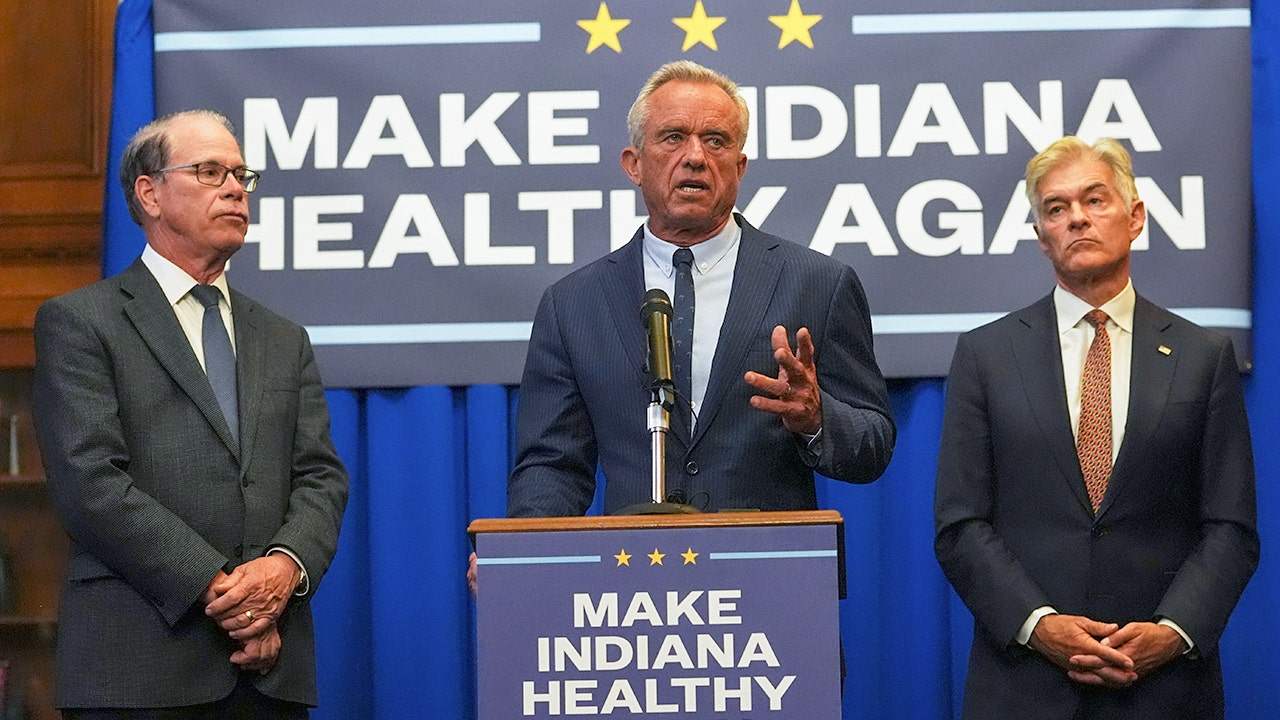Alzheimer’s drug Leqembi now has full FDA approval in the US and that means Medicare will pay for it

US officials gave full approval to a closely watched Alzheimer’s drug on Thursday, paving the way for Medicare and other insurance plans to cover the treatment of people with the brain-ravaging disease.
The Food and Drug Administration (FDA) approved the IV drug, Leqembi, for patients with mild dementia and other symptoms caused by early Alzheimer’s disease. It is the first drug convincingly shown to slightly slow the cognitive decline caused by Alzheimer’s disease.
Japanese drugmaker Eisai received conditional FDA approval in January based on early results suggesting that Leqembi worked by removing a sticky brain plaque linked to the disease.
The FDA confirmed those results by reviewing data from a larger study of 1,800 patients in which the drug slowed memory and thinking decline by about five months in those who received the treatment, compared to those who received a dummy drug.
“This confirmatory study confirmed that it is a safe and effective treatment for patients with Alzheimer’s disease,” said Dr. Teresa Buracchio, the FDA’s director of neurology, said in a statement.
The drug’s prescribing information will contain the most serious type of warning, indicating that Leqembi can cause brain swelling and bleeding, side effects that can be dangerous in rare cases. The label notes that these problems are seen with other plaque-targeting Alzheimer’s drugs.
Leqembi is not approved in Canada, although clinical trials have been conducted in Toronto.
Drugs cost over $26K for a year
The process of converting a drug to full FDA approval usually attracts little attention. But Alzheimer’s patients and advocates have been lobbying the federal government for months after Medicare officials announced last year they would not pay for routine use of drugs like Leqembi until they receive full FDA approval.
There were concerns that the cost of new plaque-targeting Alzheimer’s drugs could overwhelm the finances of the program, which provides care to 60 million seniors. Leqembi is priced at about $26,500 for a year of IVs delivered every two weeks.
The vast majority of Americans with Alzheimer’s disease get their health insurance through Medicare. And private insurers have followed suit, withholding coverage for Leqembi and a similar drug, Aduhelm, until they receive full FDA approval.
WATCH: New Alzheimer’s drug met with hope and caution
Two drug companies say a drug they’ve developed has the potential to slow the progression of Alzheimer’s disease, something no treatment has been able to do. Now researchers and those affected by the disease are anxiously awaiting the full results of a human trial for the medication.
An FDA decision on full approval for Aduhelm is still years away.
Medicare administrator, Chiquita Brooks-LaSure, said in a statement Thursday that the program will begin paying for the drug now that it has full FDA approval. But the government also has additional requirements, including enrollment in a federal registry to track the drug’s safety and effectiveness in the real world.
Medicare “will broadly cover this drug as it continues to collect data that will help us understand how the drug works,” Brooks-LaSure said.
Some Medicare patients may be responsible for paying the standard 20 percent of Leqembi’s costs, though the amount will vary depending on their plans and other coverage details.
Hospitals and medical clinics have warned that it could take some time for people to start on the drug.
Doctors must confirm that patients have the brain plaque Leqembi targets before prescribing it. Nurses should be trained to administer the drug and patients should be monitored with repeat brain scans to check for swelling or bleeding.
The imaging and administration services create additional costs for hospitals beyond the drug itself.
Eisai has told investors that by 2026, about 100,000 Americans could be diagnosed and eligible for Leqembi. The drug is being marketed jointly with Cambridge, Massachusetts-based Biogen.
“We want to make sure that only eligible patients receive this product,” said Alexander Scott, a vice president at Eisai.
Eisai studied the drug in people with early or mild disease who were evaluated using a scale that measures memory, thinking and other basic skills. After 18 months, those who received Leqembi fell more slowly — a difference of less than half a point on the scale — than participants who received a dummy drip.
Some Alzheimer’s experts say the delay is probably too subtle for patients or their families to notice.
But federal health advisers said the difference could still make sense and advised the FDA to fully approve the drug at a public meeting in June.





